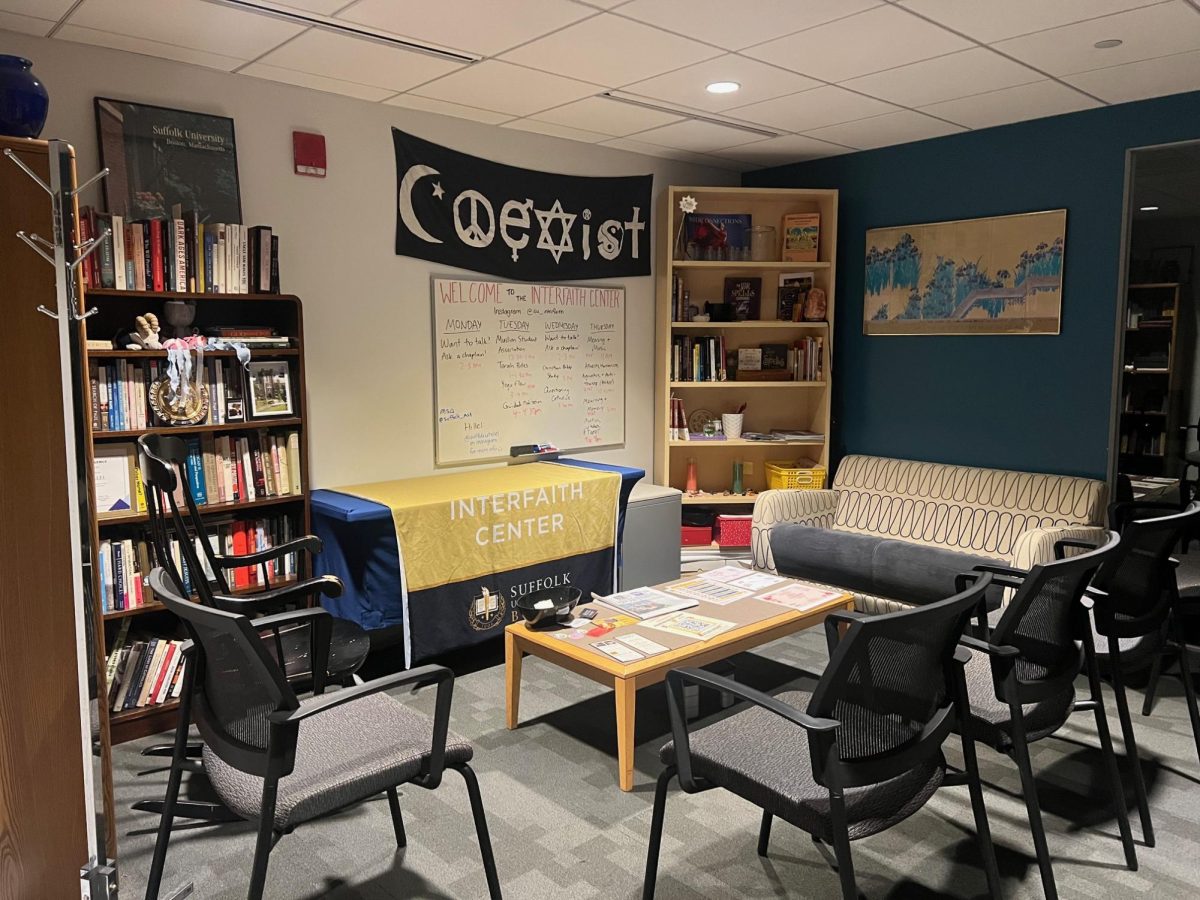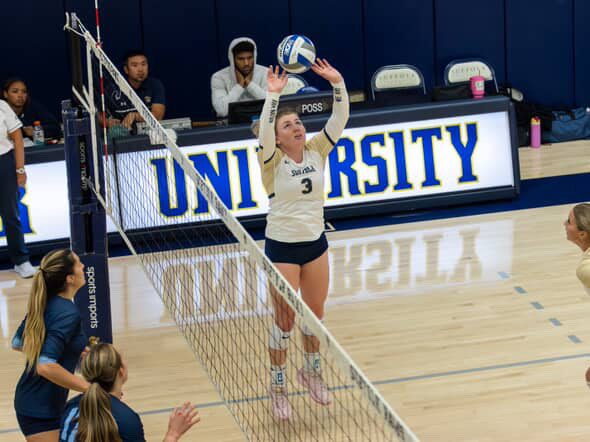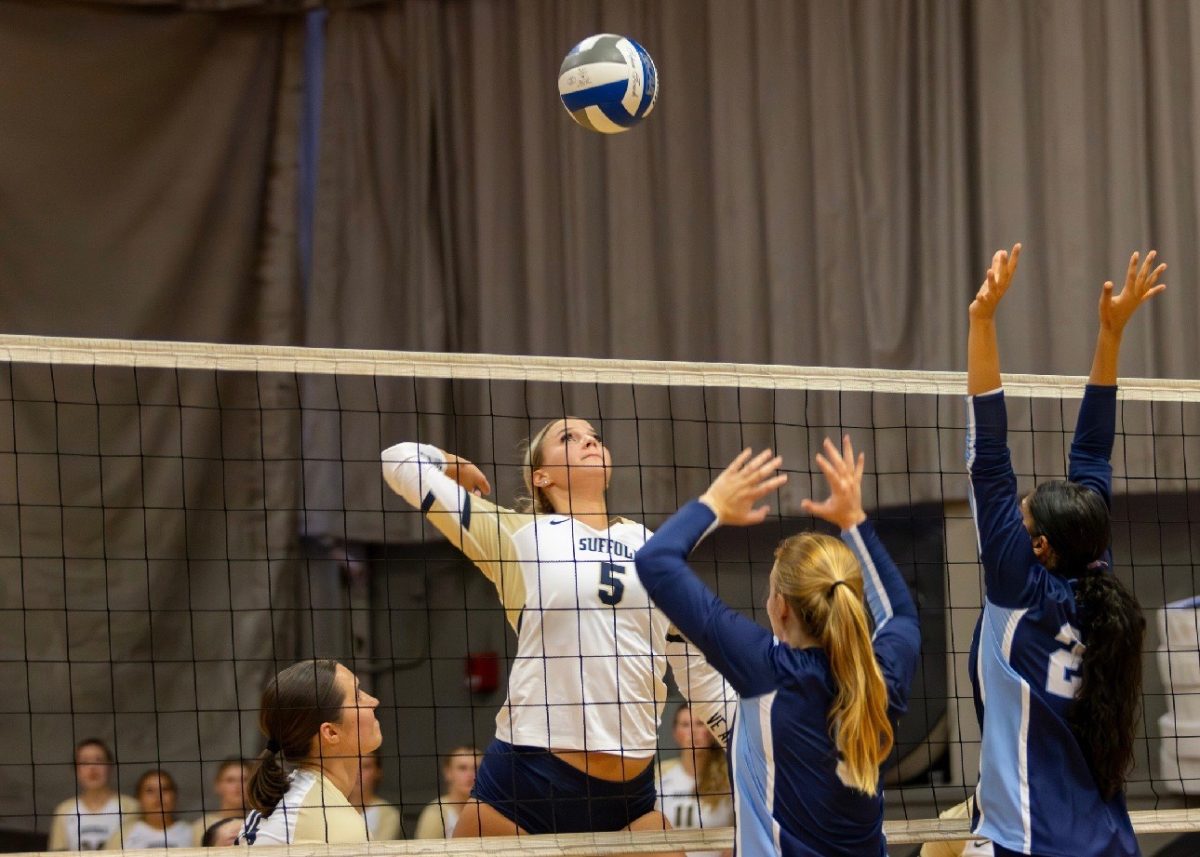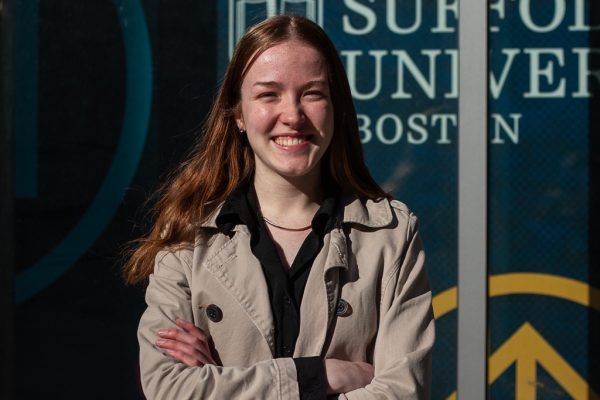Editor’s Note: Due to ongoing safety concerns, the following individuals quoted in this story are attributed with their initials or first name only.
Five Suffolk University students were arrested at Emerson College during the dismantling of the “Popular University Encampment” April 25. As part of the 118 arrests made early that morning, protesters describe scenes of violence and police brutality.
National Students for Justice in Palestine issued a statement April 20, instating the “Popular University for Gaza.” In encampments established across the city and the nation, students are calling for their universities to disclose and divest from investments in Israel and for a permanent ceasefire and end of the occupation in Palestine.
At 7:00 p.m. April 21, Emerson established a “Popular University Encampment” at 2 Boylston Place, a public alleyway. Encampments were simultaneously established at the Massachusetts Institute of Technology, Northeastern University and Tufts University. Emerson’s encampment was maintained for just over three days.
Boston, state and Emerson police presence increased around 10:30 p.m. April 24, as reported by The Berkeley Beacon, Emerson’s student-run newspaper. While officers gathered inside the Massachusetts Transportation Building, protesters formed human chains on both ends of the alley.
At 1:33 a.m. April 25, an officer made a disbursement notice, as seen on bodycam footage, stating that they supported the individuals’ right to protest and did not want to make any arrests. Boston Police cited the Unlawful Camping Ordinance, which “prohibits camping on public property under certain circumstances,” as stated in a police report obtained by The Journal. According to the report, law enforcement received “at least half a dozen” 911 calls for noise complaints and protests, as well as 311 complaints about protesters blocking sidewalks and harassing members of the public.
From approximately 1:45 a.m. to 3:30 a.m., police began arresting protesters.
The total was later confirmed in the police report as 118 arrested, five of which are current Suffolk University students, as found in an investigation conducted by The Journal.
Over the course of the nearly two hours of arrests, protesters described high use of force by officers.
“I was pushed onto the ground. I was dragged. I have bruising from all of it all over the place. And then I was pinned to the ground and the officer’s knee was on my neck. I told him I couldn’t breathe, he lifted me up really quickly and slammed me onto the wall,” said H.W., an executive board member of Suffolk Students for Justice in Palestine who was arrested at the encampment April 25.
Alec M., a protester at the Emerson encampment, recalled the moments they were pulled from the line on the Transit building side of the alley, suffocated to the point of unconsciousness.
“A cop walked over to me, punched the goggles off of my face, grabbed me by the keffiyeh and then strangled me unconscious with the keffiyeh,” said Alec. The next thing they remember was regaining consciousness with “about three knees on [their] back and not being able to breathe.”
C.D., another member of Suffolk SJP, was in the second row of the human chain protecting the front entrance to the encampment. The student described witnessing officers tackling protesters to the ground in order to conduct arrests, as seen in video footage taken from an Emerson residential building. C.D. stated that they were also tackled to the ground and brought into the State Transit building before being released from police custody.
One Suffolk student said the appearance of police during the arrests was “nonchalant,” describing one officer disregarding concerns for protesters’ physical safety.
“When the cops started attacking, that was probably one of the most surreal experiences I’ve ever been through. I am really lucky that I was not completely brutalized … And at that point, I lost my cane in the shuffle. I was like, ‘okay, you’re pushing me towards the exit. I guess I’ll just leave.’ So I walk out with my hands up and then a cop grabs me from behind and handcuffs me,” said K.W., a member of Suffolk SJP.
R., an executive board member of Suffolk SJP, described their struggle with police officers, who attempted to pull them from the front line, but the two officers stopped using force against R. after not being able to separate them from the line of arm-linked protesters. R. said they held firm in the front line to protect those behind them as they witnessed dozens being brutalized by the police.
“I was resisting because they were pulling my neck and choking the person next to me, and I could already see people being beaten. I resisted because I wasn’t going to just let them beat kids,” said R.
To R., they said it appeared as though feminine-presenting protesters and people of color were met with more force than white, masculine presenting individuals.
Emerson staff traveled to the precincts where arrested students were being held April 25, posting bail for Emerson students. Emerson students established a bail fund, but it is not known how many students it posted for and it has not been confirmed what funds were used by Emerson faculty to pay bails. Those arrested who were not Emerson students had their bail paid by the Massachusetts Bail Fund. According to many of those present, the encampment included community members from a multitude of area universities, as well as non-college students.
All 118 individuals arrested were charged with disturbing the peace, according to the police report. Court dates for those arrested are set for the coming weeks.
In addition to those arrested, many protesters were detained in Emerson’s Little Building. S., a member of Suffolk SJP, said police officers blocked both exits to the Little Building and told those inside they were not allowed to leave until approximately 3:30 a.m. As reported by the Beacon, all detained individuals within Little Building were released by 6 p.m. April 25.
For the over three days leading up to the arrests made at the encampment, those present described the environment as one of peace, support, community and education.
“The beginning was amazing. We did teach-ins, we had revolutionaries like former Black Panthers come and speak, we had people from on the ground sending us messages to read out loud, we taught about the unhoused community and displacement from Boston to Palestine, all of those things to kind of get conversations going and getting people educated,” said H.W.
Emerson College President Jay Bernhardt said in a statement that the college would not pursue disciplinary action against students involved in the encampment. Suffolk University did not confirm or deny if it would pursue disciplinary action against the five students arrested.
“The University supports our students’ right to express their views so long as campus policies and laws are appropriately followed. We cannot speak to whether or not that was the case for students involved in the Emerson encampment. Our focus is on ensuring any students who were present are now safe and have the support they need to finish their semester successfully,” said Suffolk University Vice President of Communications Greg Gatlin.
For many involved in the encampment, the violence they witnessed and were subject to will not deter further demands for universities to divest from Israel, as they hope more conversations about the violence in Gaza and the killing of more than 34,000 Palestinians are had.
“There were a lot of people in the alley that were traumatized, but nowhere near as much as Palestinians are being traumatized. I think Suffolk students, professors and administration have been very silent this whole time on Palestine; It’s almost like there’s a vow of silence among most people,” said S.




















